Since 2010, the Women's Center "Milica" (Ženski centar „Milica) works to improve the position and quality, life and health of women through various activities.
Vesna Bondžić, the president of this association, on the occasion of the National Breast Cancer Day, recently received an award from the Avon company and the B92 Fund for her Exceptional contribution to the fight against breast cancer.
On that occasion, we talked with Vesna about the activities, work and achievements of the Women's Center "Milica", as well as the significance of this award.
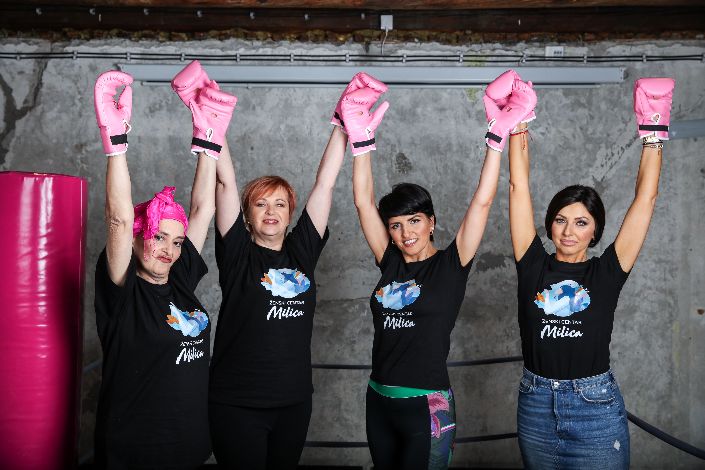
How did the Milica Women's Center come about, with what idea did it all start, how did your mission develop?
Vesna: The association was founded in 2010 as a desire to change something for the better in a place where an breasts' ultrasound or mammography examination has never been done in a state institution (Health Center) in a place where over 10 people with cancer are registered monthly. the sick are left to fend for themselves without the support of the system and society. In the beginning, we had to fight against stigmatization, because cancer necessarily meant death, it is not talked about, especially in the rural areas. We organized trainings, tribunes, but also events in which everyone was involved, from children to adults, messages were sent about the importance of examination and self-examination through "Butterfly Game" or an evening of purple scarves, then we helped others, children with cancer, children disabled in development, gathering around us people who saw in us strength, not powerlessness. Then we started actions and in cooperation with the B92 Fund we bought an ultrasound device for the Health Center.
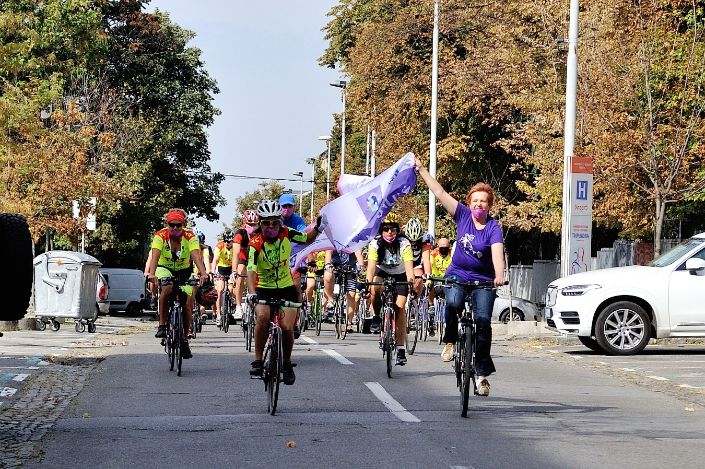
We equipped the Oncology Department and Dispensary in ZC Studenica and the hospital in Vrnjačka Banja with bedding and pillows. We have educated rural women about breast self-examination and we are the only association that works with blind and partially sighted people, devising a self-examination adapted to them and much more. We very quickly crossed the borders of the local and now we are working at the national level, advocating for the availability of diagnostics and equal rights to treatment with innovative therapies for every woman in Serbia.
We are also working on education on the importance of preventive examinations through campaigns such as Give Cancer a Pedal, which has been held since 2015 and includes 29 cities and municipalities in Serbia and Slovenia. We have been running the "Give Strength" campaign for three years, which we launched with the Panten brand with the support of the Deleze Srbija Company, through which we provide women with real hair wigs. 40 wigs were made and 10 more are planned.
Today, we are working on the establishment of the National Center for Support of Oncology Patients with Breast Cancer or Gynecological Cancer, and we are advocating for equal rights to treatment and access to diagnostics and innovative therapies for every woman in Serbia.
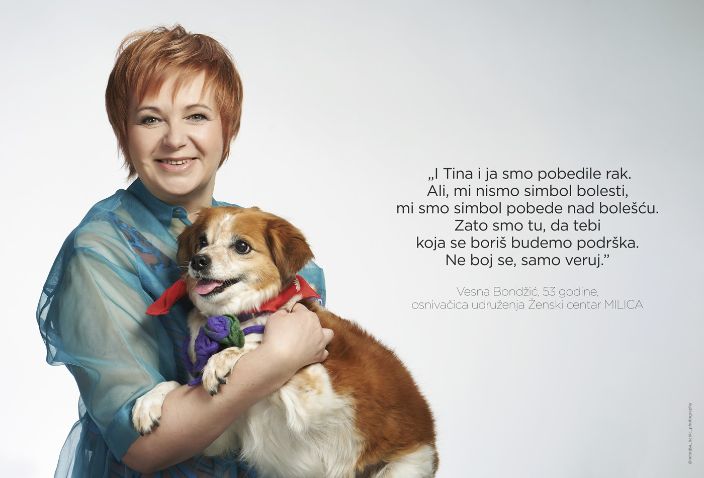
What was your personal motivation for working in the nonprofit sector?
Vesna: As a woman with experience of breast cancer, I felt all the shortcomings of this system, from not providing psychosocial support to unavailability of diagnostics, insufficient information, GETTING WRONG INFORMATION THAT CAN THREATEN A LIFE, losing a job, lack of support from partners, family and such. When you get out of cancer, the only thing you want is that our treatment and life must not depend on the opinion of one doctor, but our treatment should be decided by a multidisciplinary team wherever you are treated. Also, no woman should and must not go through cancer alone, she should have the support of the system, society, family. Quality of life and dignity should be maintained both during and after treatment. That is why I formed the Milica Women's Center, that is why I educated myself and dedicated all my strength to the support and fight for a dignified treatment and life for all those who face cancer.
I try to make the patient's voice heard and to finally ask ourselves where our treatment and lives are decided. We should not be represented by someone who does not understand our needs and problems. We are educated enough for that.
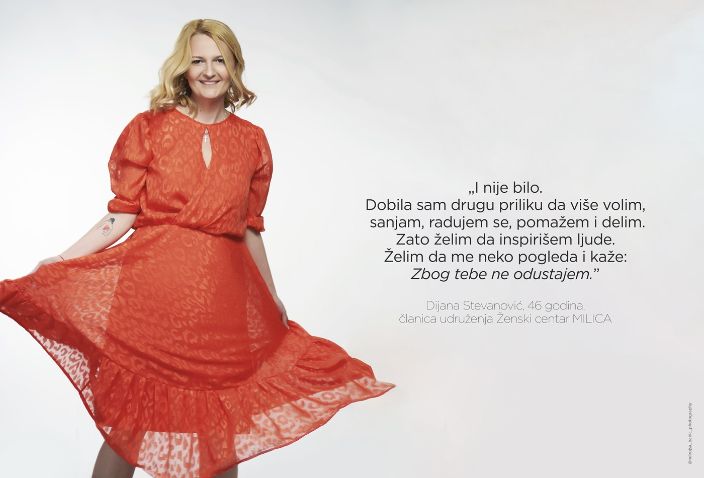
How did the COVID-19 crisis affect the work of the organization? How has the way you function changed, what activities have you been most focused on in the previous period?
Vesna: We believe that Patient Associations were formed precisely for the reason of being help and support in difficult times and situations. By declaring a pandemic, we worked harder than usual because everything stopped and many doors closed for patients. Nobody thought about how the patient would continue with the treatment if you cancel the transport, close the door to the diagnostics and the like. We then coordinated between patients and health care institutions, helped where they were most needed, connected patients and sent them regular notifications, from important telephones to changes in the way institutions work.
Thanks to the B92 Fund, we provided disinfectants to families, alerted them via social networks to help with masks and gloves for the patients we drove to therapy. Thanks to the Trag Foundation and the companies Roche and Novartis, we provided three months of psychological support and transportation of patients for therapy to the 80 km distant radiology center in KC Kragujevac. Then we raised the work to the national level. We opened a center in Belgrade, connected health professionals from KC Nis, KC Kragujevac, IORS, EB Vojvodina to the National Expert Council.
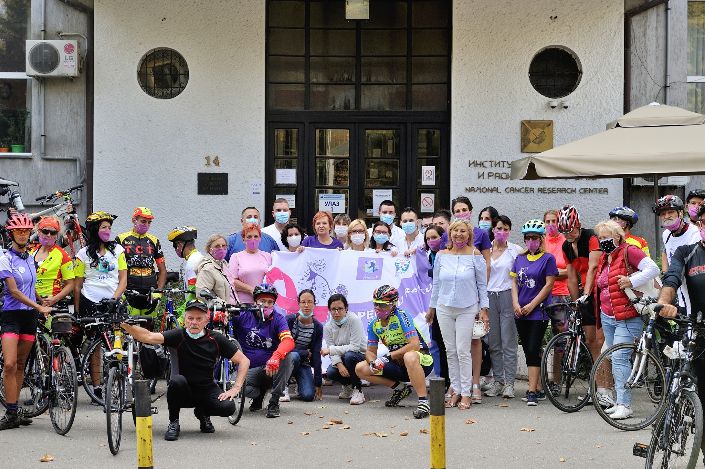
We organized online consultations with these experts, enabling every woman in Serbia to have access to an oncologist, surgeon or experiential support.
Together with the Expert Council, we have launched two initiatives: the Initiative for the introduction of innovative therapies for the treatment of women with HER2- and HR + metastatic breast cancer on the List of drugs issued at the expense of compulsory health insurance and the Initiative for placing Pertuzumab on the List of drugs prescribe and issue at the expense of compulsory health insurance (RHIF) in the treatment of patients with early stage HER2 + breast cancer with a high risk of disease relapse. At the same time, we are conducting campaigns informing the public about this problem. We are now working on the establishment of the National Center for Support of Oncology Patients with Breast Cancer and Gynecological Cancers.
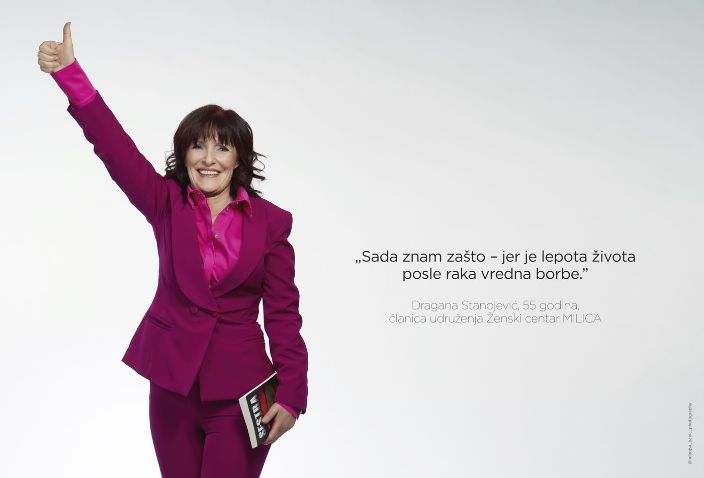
What activities are you currently most focused on? What are the most important plans for 2021?
Vesna: We are currently focused on networking women who are in the process of treatment, as well as those cured in the "Network of Brave Women", in order to create a unique database and at the same time provide women with important and accurate information and notifications. At this time, oncology patients do not have access to consultations with doctors, they do not have time to ask about problems that occur during treatment, so only information from social networks is available, which comes from someone who is not competent for this type of help and support. It may be a good intention, but it may end badly for the one who receives advice. That is why we are working at the National Center for Support of Oncology Patients with Breast Cancer and Gynecological Cancer, which will have experiential telephone support for women who have been educated by the profession, through the Patient Academy and the possibility of online consultation with top oncologists and surgeons. . These consultations proved to be very useful during the pandemic when doctors became inaccessible to patients. In addition, we are running public information campaigns to launch an initiative to introduce innovative therapies to treat women for breast cancer.
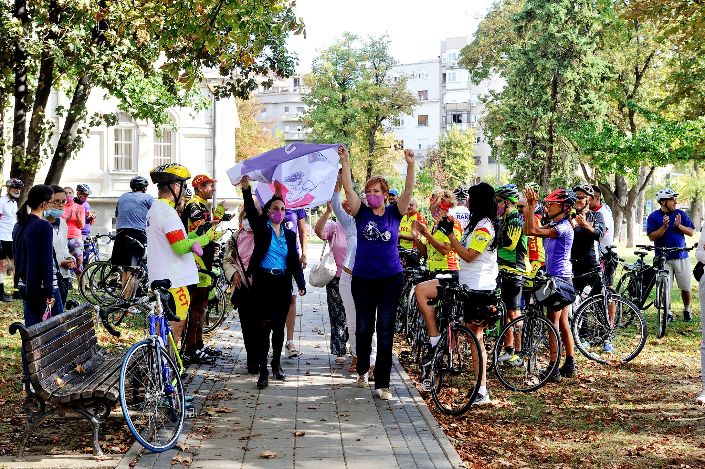
The continuation of the activities will be focused on the conversation with the RFZO (a/n: RHIF) and the representatives of the Central Commission for Medicines, because we are waiting for the answer from September for the therapy that means life and which only women in Serbia do not receive. That is why we present a joint message from the exhibition we set up in Kalemegdan during the month of March entitled "Together against the Darkness of Cancer" by Nebojsa Babic - "We, who won our battles with cancer, are now fighting together for equal rights to treat every woman in Serbia. That none of them NEVER waits for therapy again to live a LIFE WORTH OF A HUMAN BEING. ”
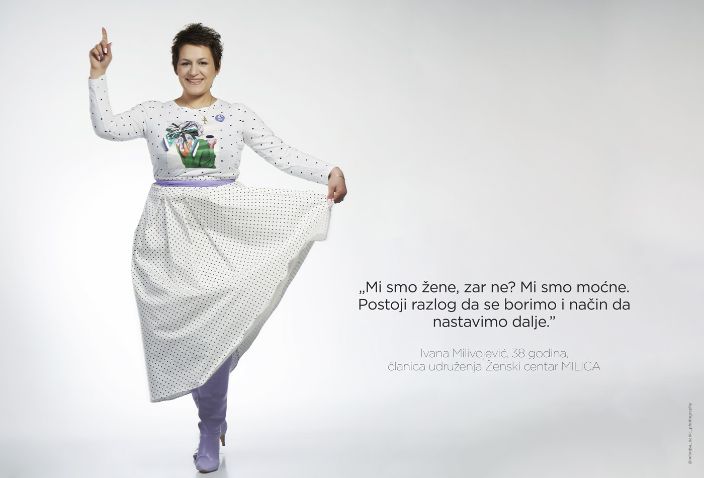
How is the Women's Center "Milica" financed, with which different types of donors do you cooperate and in what way? In what ways can those who want to support the work of the association?
Vesna: We are a nonprofit association, we are financed by donations and through projects. For the last three years, we have managed to provide funds for the work of the Center through donor evenings and projects, but now it is quite difficult, in fact impossible to organize something like that. The big problem is the space, no one wants to finance it, and it is important to us, especially because women come here for wigs, prostheses and bras, for psychological and experiential support.
The center in Belgrade is extremely important because women from the interior who travel for eight hours in both directions to attend a consultation or control have a place to rest or spend the night, especially now at the time of the Covid-19.
We desperately need the National Center for Support of Oncology Patients, which, in addition to this part, would also have an SOS telephone for experiential support and online consultations with experts in the field of oncology, oncology surgery and such. It is necessary for the state to stand behind the National Center for Patient Support, allocating part of the budget for the sustainability of this extremely important and necessary center, we are here to implement this support and help the system, but funds for work and sustainability are very important.
In addition to the money that is important, we also need the support of volunteers who would fix our site, increase visibility through social networks, organize or help organize campaigns to promote the importance of preventive examinations, create a slogan and such, to bring messages to others.
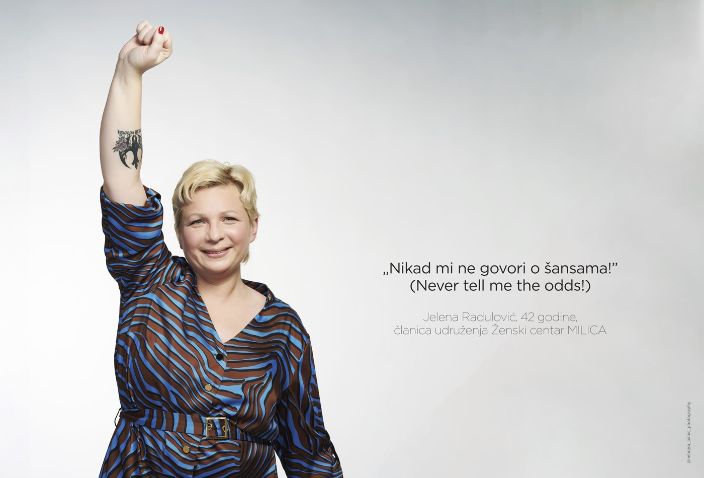
Recently, on the occasion of the National Breast Cancer Day, you received the Recognition for Outstanding Contribution to the Fight against Breast Cancer. How does this, as well as other awards received during the years of the organization's work, affect the motivation to act even better for the benefit of your community? What other awards would you single out as particularly important?
Vesna: Recognitions are important because they confirm that you are on the right path, that you are visible, that you are recognized as someone who can help, encourage, someone who is important to the community. They give visibility to your works and help to hear your messages. The awards show you where society puts you and how much they understand your work. The Lifetime Achievement Award for Outstanding Contribution to the Fight Against Breast Cancer in Serbia came after eleven years of unconditional commitment. This is not only a recognition of my work, but also a confirmation of the existence of us women who, in addition to our personal victory over breast cancer, remained on this battlefield to be help and support to both patients and the system, especially today during the pandemic when many doors are closed to patients
I want to use this award to turn on the light and in this darkness illuminate and raise awareness of what is not visible in the right way to decision makers, media and society, although we have changed a lot in people's minds, attitudes towards the sick and disease, but also the role of associations. a patient that refers not only to emotional support, but also to the fight for quality prevention and treatment of every woman in Serbia.
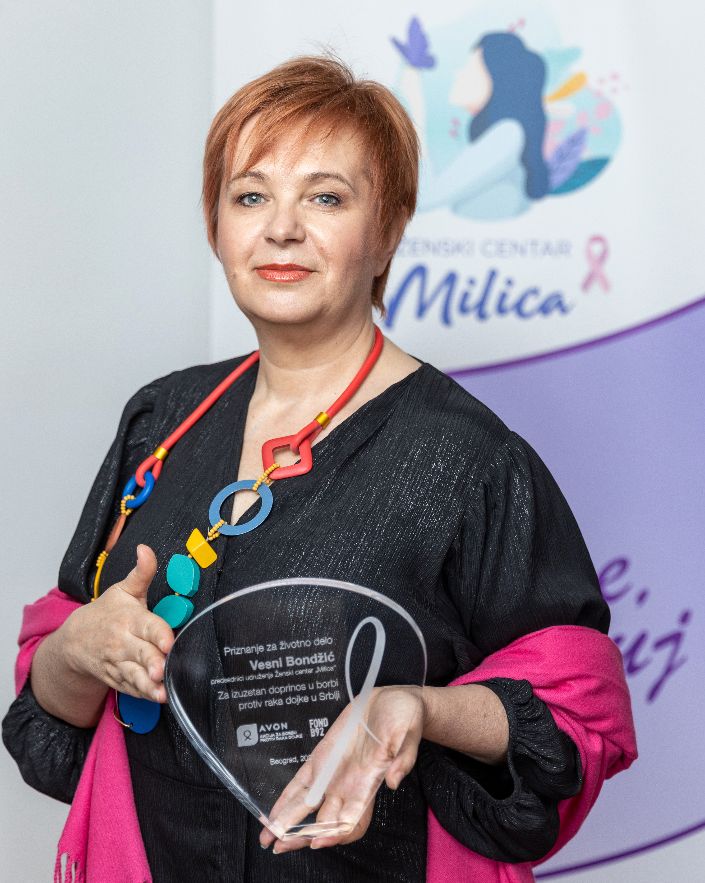
Unfortunately, while strategies are being made to fight breast cancer, decide on the method of treatment and prevention, the patient's path, we are still not recognized as partners whose experience and knowledge can certainly contribute to a different picture of reality. Still, I cherish the hope that this recognition is that outstretched hand that will turn on the light in this darkness so that we can finally become visible and take our place, representing ourselves where our fates are being decided.
The second award, which is my ID card in fact, is VIRTUS, a special award for individual contribution to the development of philanthropy in the local community. She defines me as a human being and is extremely dear to me.
I am also very proud of the BeFem Award for the fight for women's reproductive health and the Plaque with the silver badge of the Municipality of Vrnjačka Banja. As for the Association, the Charter of Captain Mišo Anastasijević for humanity and the improvement of the quality of life and health of women, it is in a special place.
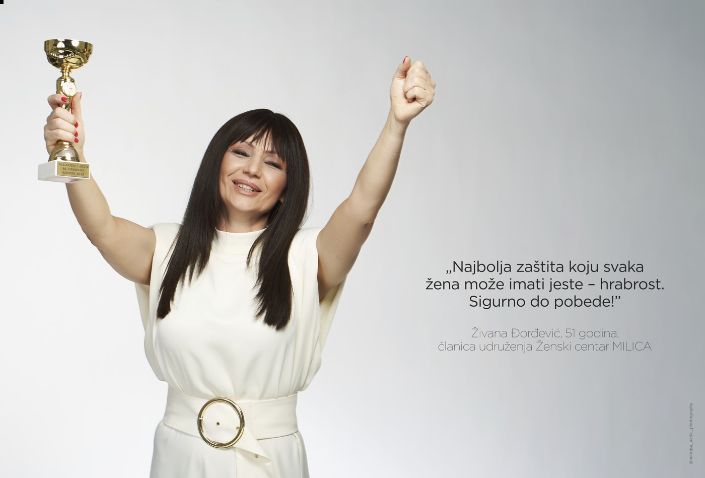
Women's Center "Milica" is recognizable for its volunteers. How do you reach out to volunteers and what is their motivation to get involved in the work of the association? How can those who want to volunteer get involved in your work?
Vesna: The work of our center is basically voluntary, we realized from the very beginning that the Association should not only consist of people who have experience of cancer, but everyone who can help and contribute to this fight. Our goal is not to separate the sick from the healthy, but to include the sick in the normal course of life, integrate them into the community and remove the stigma that a woman with cancer is not useful to herself or society, that a cancer diagnosis necessarily means a death sentence. Volunteers are from various areas of society and age, we have young people who join actions and campaigns, help us master these new technologies, get involved in actions of donating hair for wigs through the campaign "Give strength", translate brochures and such.
A big role in the association is played by women who have gone through the experience of cancer and help to spread awareness about the importance of regular check-ups, provide experiential support and help. We also have people who have not gone through this experience, but are there to help both through donations and participation, with advice from the field of their profession. We have great support from the Expert Council, which has a consultative role in the work of the association. Together, we have launched these innovative therapy initiatives. The members of the expert council are always available for any dilemma or problem we have. We need constant psycho-social support, we can't always provide that, we manage through projects.
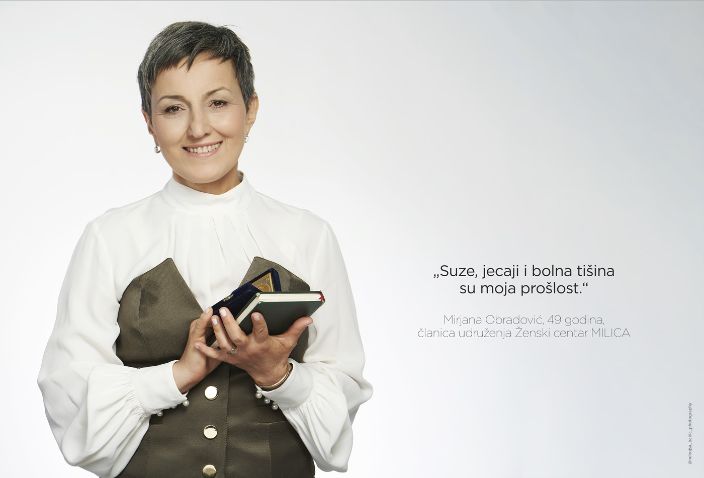
What do your advocacy activities look like? What results are you most proud of?
Vesna: The first success is the safe turning of the mobile mammograph to the municipality of Vrnjačka Banja for a month, although it was not planned for that year. We consider the purchase of an ultrasound machine together with the B92 Fund to be a great success, but also a great lesson on how to and how not to. What is important at the national level is the success we have achieved as a team with members of the expert council in the RHIF, when we managed to make the treatment of breast cancer with innovative therapies and our two initiatives a priority in the Central Commission for Medicines of the RHIF. Activities towards negotiating faster decision-making are ahead of us in the coming days. I also think that the role of the Association of Breast Cancer Patients has changed a lot with our engagement and we are currently advocating the need for members of the Association of Breast Cancer Patients to be on commissions and subcommissions of institutions that decide on our treatment and life. There are few associations in this area that are run from the "shoes" of patients, ZC Milica is trying to change the image of the role of the association. We are not and should not be a group of women with cancer experience who crochet, tie and gather to comfort each other. We have united to give support, to change something in the quality of treatment, prevention, life.
Our role is very important as a support to a system that currently, with its capacity and organization, does not meet the needs of such a large number of patients, especially now in the time of a pandemic. Our advocacy is directed towards the media, decision makers, as well as towards associations, to strengthen them and move them in that direction, because that is very important.
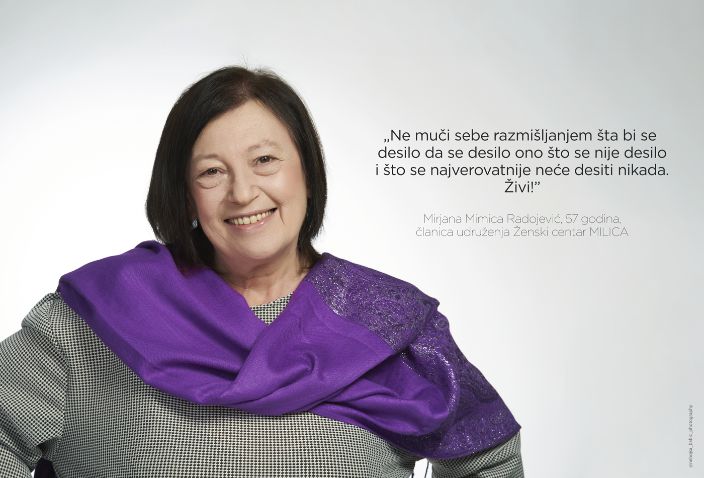
How do those who need your support come to you? What kind of support can be singled out as the most needed and most important for women suffering from and treated for cancer and their families? How can the environment provide support?
Vesna: Unfortunately, women who go through coping with the disease do not have the support of the system, society, family, to the extent and in the way that is needed. The system has no capacity, society and family do not know how. Patient associations are very important, but they are not visible enough. Women, especially now that they have limited time with a doctor or are prevented from coming to consultations, are focused on social media, on support groups that were established in good faith, but are out of control. In addition to the emotional support that is important, you also get alternative ways of treatment, you exchange videos, medications, give advice without even knowing what type of cancer a woman is suffering from. It is very dangerous and can cost lives. That is why we, as an Association, advocated for education by experts, and last year two members from the Association of Breast Cancer Patients graduated from the Academy for Patients and were able to provide experiential support and educate other members on how to support women going through the process. treatment depending on the type of cancer. We will include these women in the work of our National Center, via the SOS hotline, and they will be available for consultations to women from any part of Serbia. For that, we need the support of the system, the company, the media, in order for the Center to come to life and for faith in doctors to return, a modern approach to treatment that can lead to healing or prolong life.
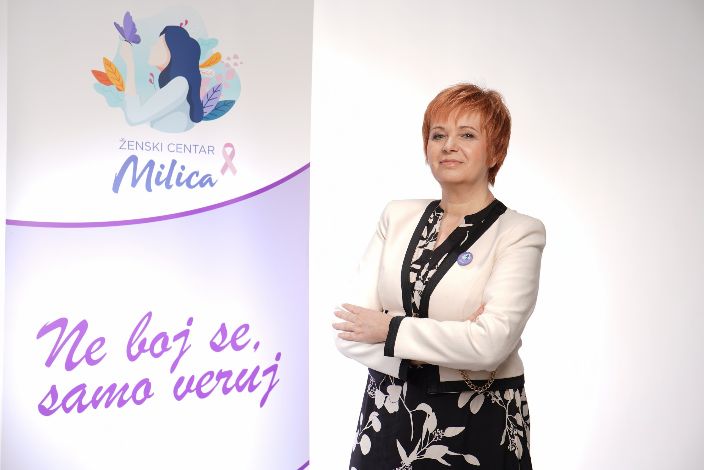
What is very important is the psychological support that must be part of the support system always available to patients and their families, the availability of treatment with innovative therapies as women in the environment have, but in addition to the right to treatment, the availability of treatment is also very important. At the time of the pandemic, when everything stopped, it was difficult to maintain the continuity of going to therapies for patients who do not live in the place where they are admitted. For example, one cycle of radiotherapy lasts for a continuous 25-30 daily visits to the center. Many patients have to provide transportation and travel 100-150 km in one direction every day. Yes, the costs are reimbursed, but only after a few months from the delivery of the paper. It is also a big problem that when you get cancer, you go on sick leave and receive 60% of your salary, like when you have the flu, and it is known that the treatment lasts at least a year intensively. Many women, who are single mothers, end their sick leave and go to work in order to survive financially. This is certainly not in favor of a better treatment outcome.
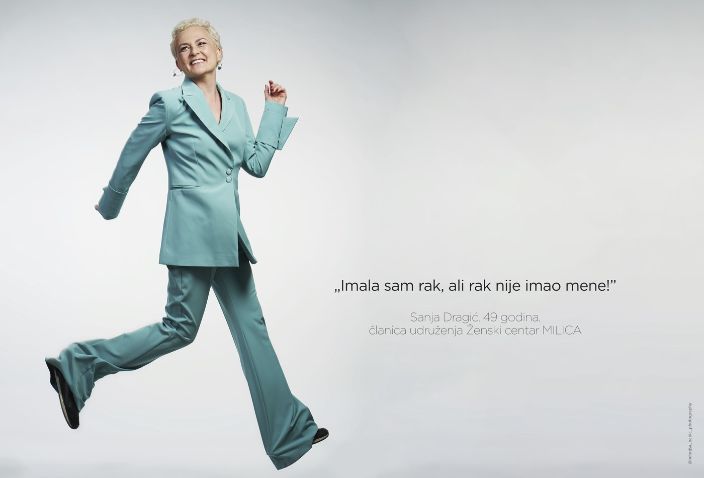
What are the biggest successes that the association has achieved in its work so far, and what is it that you still want to achieve?
Vesna: Since 2015, the "Milica Day Center" has been functioning in Vrnjačka Banja, which provides help and support to patients from that part of Serbia. The center was formed thanks to the support of the Trag Foundation. We are terribly proud of raising the work to the national level and forming the National Expert Council, with which we launched two initiatives towards the RHIF, enabled online consultations and the like, as well as the opening of a branch in Belgrade.
We think that our work during the pandemic is quite important and useful for patients.
Since 2019, we are proud of the Humanitarian Taxi - driving oncology patients to therapy once a week, in the same year the campaign Give Strength was conducted, in cooperation with the Panten brand and the support of Delhaize Serbia, through which 40 natural hair wigs were made and distributed free of charge to women. who undergo chemotherapy which causes them to lose their hair and when their hair grows back, they return the wigs to be given to other patients. The campaign is extremely supported through social networks and we receive a large number of hair donations from the country and the region.
We are very proud of the Give Cancer a Pedal Campaign, which has been held since 2015 at the beginning of October and which in 2020 included 29 cities and municipalities in Serbia and Slovenia. The goal is to promote the importance of regular preventive check-ups and healthy lifestyles, especially cycling. This campaign connected all important structures at the local and national level. We received the support of the Ministry of Health of RS, IOC, IJZS "Dr Milan Jovanović Batut" and all relevant tertiary health institutions from Belgrade, Niš, Kragujevac, Novi Sad, S. Kamenica ...
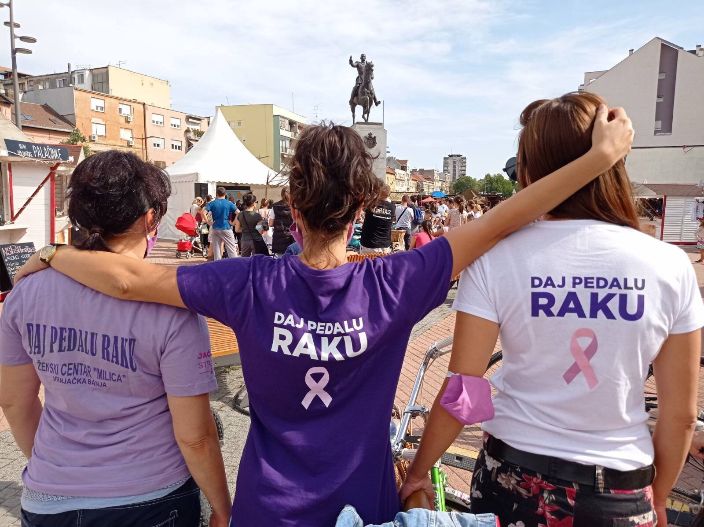
Since October 2020, in partnership with UG Phenomenon, we have been implementing the Women in the Mirror project, which is part of a broader project "Platform for Responsible Public Financial Management", implemented by the United Nations Development Program (UNDP) and funded by the Government of Sweden on education of rural women, importance of preventive examinations and training on breast self-examination, psychological support for cancer patients and driving to a complete gynecological examination of socially endangered rural women and transportation of women for therapy from the place of residence to the oncology center. Health center in Vrnjačka Banja and rural clinics. The project will end on July 15.
We have not forgotten the vulnerable categories either. We are the only ones doing self-examination training for blind and partially sighted people, which resulted in a signed memorandum of cooperation.

This text is part of the "Good Society" campaign, which the regional SIGN network conducts in Serbia through the Trag Foundation. The campaign deals with what is needed for a good society, how it is built, and whether it is the state's responsibility, media's, companies, civil organizations, or all of us.
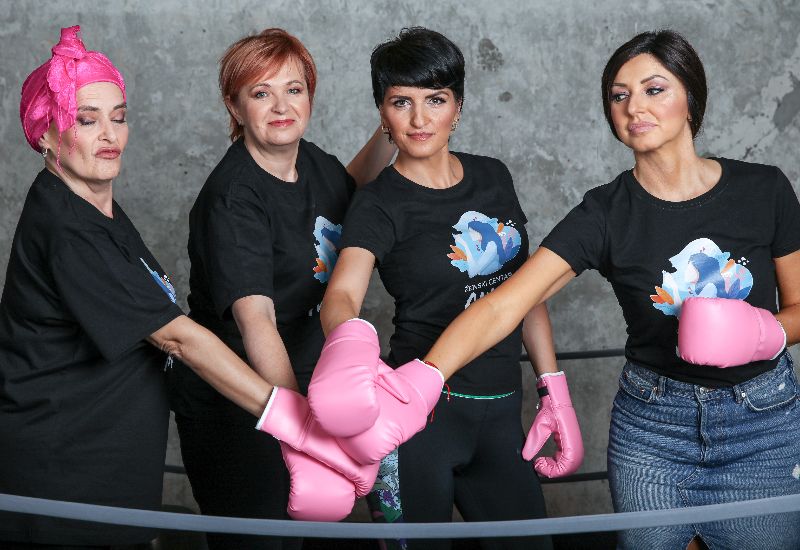

Leave a comment